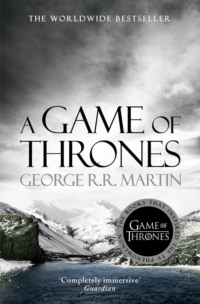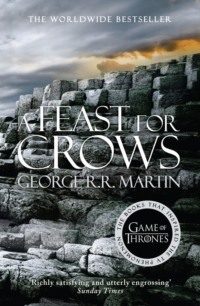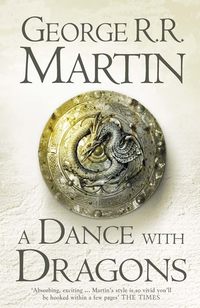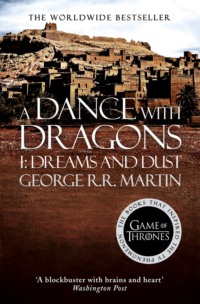
Полная версия
Dangerous Women. Part II
The fence didn’t stop him.
Sarah stared as Sarge vanished into the rolling fog and then reappeared in the street outside her fence, baying. The man stooped, picked up a chunk of the rotten branch, and threw it at Sarge. She didn’t think it hit him, but the beagle yelped and dodged. “Leave my dog alone!” she shouted at him. “I’ve called the cops! They’re on the way!”
He kept his eyes on the dog. Sarge bayed again, noisily proclaiming his territory. The thief snatched a wrench from the tool pouch and threw it. This time she heard a meaty thunk as it hit her dog, and Sarge’s yipping as he fled was that of an injured dog. “Sarge! Sarge, come back! You bastard! You bastard, leave my dog alone!” For the man was pursuing him, bat held ready.
Sarah ran into the house, grabbed her phone, dialed it, and ran outside again. Ringing, ringing … “Sarge!” she shouted, fumbled the catch on the gate, and ran out into an empty street.
Empty.
No truck. No fallen branches or dead leaves. A mist under the greenbelt trees at the end of the street vanished as the sun broke through the overcast. She stood in a tidy urban neighborhood of mowed lawns and swept sidewalks. No shattered windshield, no shabby thief. Hastily, she pushed the “off” button on her phone. No beagle. “Sarge!” she called, her voice breaking on his name. But he was gone, just as gone as everything else she had glimpsed.
The phone in her hand rang.
Her voice shook as she assured 911 that everything was all right, that she had dropped the phone and accidentally pushed buttons as she picked it up. No, no one needed to come by, she was fine.
She sat at her kitchen table, stared at the street, and cried for two hours. Cried for her mind that was slipping away, cried for Sarge being gone, cried for a life spinning out of her control. Cried for being alone in a foreign world. She took the assisted living brochures out of the recycling bin, read them, and wept over the Alzheimer’s wing with alarms on the doors. “Anything but this, God,” she begged Him, and then thought of the sleeping pills the doctor had offered when Russ had died. She’d never filled the prescription. She looked for it in her purse. It wasn’t there.
She went upstairs and opened the drawer and looked in at the handgun. She remembered Russ showing her how the catch worked, and how she had loaded the magazine with ammunition. They’d gone plinking at tin cans in a gravel pit. Years ago. But the gun was still there, and when she worked the catch, the magazine dropped into her hand. There was an amber plastic box of ammunition next to it, surprisingly heavy. Fifty rounds. She looked at it and thought of Russ and how gone he was.
Then she put it back, got her basket, and went to pick Maureen’s apples. She and Hugh weren’t home, probably up at the Seattle hospital. Sarah filled her basket with heavy apples and lugged it home, planning what she would make. Jars of applesauce, jars of apple rings spiced and reddened with Red Hots candy. Empty jars waited, glass shoulder to shoulder, next to the enamel canner and the old pressure cooker. She stood in the kitchen, staring up at them and then at the apples on the counter. Put them in jars for whom? Who could trust anything she canned? She should drag them all down and donate them.
She shut the cupboard. Done and over. Canning was as done and over as dancing or embroidery or sex. No use mooning over it.
She washed and polished half a dozen apples, put them in a pretty basket with a late dahlia, and went to visit Richard. She left the basket at the desk with a thank-you note for the nurses and went in with the cup of coffee. She gave him sips of it and told him everything, about the fog and Linda disappearing and the man with her backpack. He watched her face and listened to the story she couldn’t tell anyone else. A shadow of life came back into his face as he offered a brother’s best advice. “Shoot the son of a bitch.” He shook his head, coughed, and added, “Poor old dog. But at least he probably went fast, eh? Better than a slow death.” He gestured around him with a bony, age-spotted hand. “Better than this, Sal. Better than this.”
She stayed an extra hour with him that day. Then she rode the bus home and went directly to bed. When she woke up at 2 a.m., she swept the floor and cleaned the bathroom and baked herself a lonely apple in the oven. The cinnamon-apple-brown-sugar smell made her weep. She ate it with tears on her cheeks.
That was the day she became completely unhooked from time. Without Sarge asking her to get up at six and feed him, what did it matter what time she got up, or when she cooked or ate or raked leaves? The newspaper would always wait for her, Safeway never closed, and she never knew which days would show her a pleasant fall afternoon in a quiet neighborhood and which ones would reveal a foggy world of derelict houses and rusting cars. Why not shop for groceries at one in the morning, or read the day’s news at eight o’clock at night while eating a microwaved dinner? Time didn’t matter anymore.
That, she decided, was the secret of it. She wondered if it happened to all old people, once they realized that time no longer applied to them. She began to deliberately go out into the yard on the foggy days to stare by choice into that dismal other world. Three days after Sarge had vanished, she saw a ragged little girl shaking the lower branches of an overgrown apple tree, hoping that the last wormy apples would fall for her. Nothing fell, but she kept trying. Sarah went back into the house and brought out the basket of apples from Maureen’s tree. She stood in her backyard and pitched them over the fence, one at a time. She threw them underhand, just as she had used to pitch softballs for her children. The first three simply vanished in the fog. Then, as the mist thickened, one thunked to the weedy brown lawn by the child. The girl jumped on the apple, believing she had shaken it down herself. Sarah lobbed half a dozen more fat red apples, sprayed and watered and ripe. With each succeeding apple, the child’s delight grew. She sat down under the tree, hunched her legs to her chest for warmth, and hungrily ate apple after apple. Sarah bit into an apple herself and ate it while she watched. When she was finished, it became a game for Sarah, to stand ready to lob an apple when the child shook the tree. When the girl couldn’t eat any more, she stuffed them into her ragged backpack. When all the apples had been thrown, Sarah went back into the house, made herself tea, and thought about it until the mist burned away and she saw the first apples she had tossed lying in the street. She laughed, brushed her hair, put on her shoes, and went shopping.
For three days the mist came, but no child appeared. Sarah wasn’t discouraged. The next time the mist swept through, she was ready. She had bagged the pink socks in plastic, taped securely shut. No telling how long they would lie there before the child came back. There were two sweatshirts, pink with sequins, and warm woolly tights and a sturdy blue backpack full of granola bars. One after another, she flung them over the fence and into the mist. She heard them land even though she couldn’t see them. When the mist cleared and only one pair of socks remained in the street, she rejoiced. She hoped she would see the little girl come back and find her gifts. She didn’t, but the next time the mist swirled, she could clearly see that the treasures were gone. “She found them,” she congratulated herself, and planned more surprises.
Simple things. A bag of dried apricots. Oatmeal cookies with chocolate chips in a sturdy plastic tub. Over the fence and into the mist. Those she saw the girl find, and the look on her face as she opened the box was priceless. The nights got colder and snow threatened. Was it as cold in that other world? Where did the child sleep? Did she den in some bushes or lair in one of the abandoned houses? Sarah found her knitting needles and ferreted out a stash of yarn. She had forgotten these colors, heather purple and acorn-cap brown and moss green. They wrapped her needles and slid through her stiff fingers with the memories of days when she could hike the autumn hillsides. She took her knitting with her in a bag when she visited Richard, and even if he didn’t know her, he remembered how their mother would never watch television without her knitting. They laughed at that, and cried a bit, too. His cough was worse. She gave him sips of coffee to clear his throat, and when he asked, in a boy’s voice, if he could keep the green wool hat, she left it with him.
Sarah packaged together heathery woolen mittens, a matching hat, and a pair of pink rubber boots. On impulse, she added a picture dictionary. She put the things in ziplock bags and when the mist swirled in the winter winds, she grinned as she Frisbeed them over the fence and into the fog. Early in November, she threw a sack of orange and black Halloween crème candies, pumpkins and cats and ears of corn left over after a very disappointing turnout of trick-or-treaters at her door.
When she visited Richard, he was wearing his green hat in bed. She told him about the little girl, about the apples and the mittens. He laughed his old laugh, then coughed himself red in the face. The nurse came, and when she eyed his coffee suspiciously, Sarah smiled and drank the rest of it. “You’re a nice lady,” Richard told her as she was leaving. “You remind me of my sister.”
Several nights later, in the middle of the night, a storm woke her and she came down the stairs to the kitchen. Outside, the wind blew past her chimney and brushed the tree branches against the roof. It would bring the last of the leaves down; she’d have to rake tomorrow. Through the wind, she heard a child’s voice, perhaps the girl’s. She opened her back door and stepped onto her porch. Overhead, the branches of the beech swayed and leaves rained, but in the street, a thick bank of mist rolled slowly past. She crossed her lawn and groped for the top of her fence. She strained her eyes and ears, trying to penetrate the fog and the darkness.
She almost stayed too long. The fence faded from her grip. She stepped back as it melted into fog. The porch light seemed distant. Mist roiled between her and her steps. Behind her, she heard heavier footfalls in the street. Men, not a child. She moved through the fog as if she were breasting deep water. Her breath was sobbing in and out of her as she stumbled up the steps. The men’s footfalls rang clear behind her. Reaching around the door, into her house, she snapped off the porch light and stood frozen on the steps, peering through mist and dark.
They had the girl. One held her firmly by the wrist. She pointed and spoke to them. She touched her hat and spoke again. The man gripping her wrist shook his head. The girl pointed again, insistently, at the apple tree across the street. The man advanced on it. Sarah watched them as they methodically searched the tree, the area under the tree, and then the planting strip and the yard across the street. One of them dragged open the sagging door and vanished into the house. He emerged a short time later shaking his head. When they looked in her direction, she wondered what they saw. What was her house in their world and time? A deserted place with broken windows like the house across the street? A burned-out hulk like the Masons’ home halfway down the block?
What would happen if the fog engulfed her house?
The man with Linda’s backpack and the baseball bat stared intently at her porch. A swirl of mist followed her as she retreated into her kitchen, not daring to shut her door lest it make a noise. Noise, she knew, could reach from her world to theirs. She pushed a chair out of the way, hating how it scraped on the floor, and hunched low to peer out over the windowsill. She reached for the light switch and snapped the lights off. There. She could see more clearly.
Backpack Man was staring at her window as he crossed the street, lightly slapping the bat against his palm as he came. The mist had coalesced in her yard. She saw him come into her yard, unhampered by an iron fence that didn’t exist in his world. He stood in her roses just below her kitchen window and stared up at her, his pale eyes focused past her. He studied her window, then threw back his head and shouted, “Sarah!” The word reached her, faint but clear. He stepped back, searching her window for her. She remained frozen. He can’t see me. I’m not in his world. Even if he knows my name, he can’t see me. He looked at the upper windows of her house and shook his head in frustration. “Sarah!” he shouted again. “You are there. You hear me! Come out!” Behind him, his cohorts took it up. “Sarah!” they chorused to the night. “Come out, Sarah!” The others drifted closer to flank Backpack Man.
They knew her name. Before they killed Linda, they had learned her name. And what else? The little girl took up the cry, her voice a thin echo. She stood close by the man who held her hand. Not his captive. Her protector.
Sarah slipped from her chair, folding down on the floor, her heart racing so she could scarcely breathe. Tears came and she huddled under her table, shaking, terrified that at any moment the window would shatter to his bat or he would step in through the open doorway. What a fool she was! Of course the child was part of their group. They would have a foraging territory, just like any group of primates. The gifts she had thrown intending only kindness to a hungry child had lured them here. The man out there wasn’t a fool. He’d seen Sarge come out of nowhere, the dog he had probably hunted down for meat. He’d know there was something mysterious about her house. Had Linda told him something before they killed her and took her things? How much had she told? Had she been pursued by them, had she led them here when she tried to cross back to this world?
Too many questions. She was shaking with terror. She clenched her teeth to keep them from chattering, tried not to breathe lest they hear her panting. She squeezed her eyes shut and tried to be utterly still. She heard the door creak on its hinges. The rising wind pushing cold air into the room, or the man with the baseball bat? She curled tighter, put her hands over her head, and closed her eyes. Don’t move, she told herself. Stay still until the danger is gone.
“Mom, what the hell! Are you all right? Did you fall? Why didn’t you call me?”
Alex, face white, on his knees by the kitchen table, peering at her. “Can you move? Can you speak? Was it a stroke?”
She blinked and tried to make sense of what she saw. Alex had his coat on. Snowflakes on his shoulders. A wool watch cap pulled down over his ears. Cold air flowing in from the open back door. “I think I just fell asleep here,” she said, and as his eyes widened, she tried to make repairs by saying, “Fell asleep reading at the table. I must have slid right down here without waking up.”
“Reading what?” he demanded wearily.
She tried to hide how much it hurt to roll to her hands and knees and crawl out from under the table. She had to grab hold of the chair seat to lever herself up and then onto it. The kitchen table was bare. “Well, how odd!” she exclaimed, and forced a smile onto her face. “And what brings you by here today?”
“Your neighbors,” he said heavily. “Maureen called. She was on her way up to Emergency with Hugh. She couldn’t stop, but she saw that your back door was open but your lights weren’t on. She didn’t see any footprints in the snow and she was worried about you. So I came.”
“How’s Hugh?”
“I didn’t ask. I came here instead.”
She looked at the kitchen floor. A delta of melting snow showed where the storm had blown into her kitchen. She’d slept curled on the floor with the door open during a snowstorm. She creaked past him to the coffeepot without a word. She went to turn it on and saw the burned crust of dried coffee in the bottom of the pot. She moved methodically as she washed out the pot, measured water, and put grounds into a clean filter. She pushed the button. No light came on.
“I think you probably burned it out,” Alex said heavily. He reached past her to unplug it. He didn’t look at her as he took off the pot, threw away the grounds, and dumped the water down the sink. “I think you must have left it turned on for a long time to evaporate that much coffee.” He pulled her small garbage can from under the sink. It was full. He tried unsuccessfully to stuff the coffeemaker into it and then left it perched crookedly on top.
He was quiet as he put water into two mugs and set them both in the microwave. She went and got the broom and swept the snow out the door, and then wiped up the water that remained. It hurt to bend; she was so stiff but didn’t dare groan. Alex made instant coffee for both of them and then sat down heavily at her table. He gestured at the chair opposite, and she reluctantly joined him.
“Do you know who I am?” he asked her.
She stared at him. “You’re my son, Alex. You’re forty-two and your birthday was last month. Your wife has two children. I’m not losing my mind.”
He opened his mouth, and then shut it. “What year is this?” He demanded.
“Two thousand and eleven. And Barack Obama is president. And I don’t like him or the Tea Party. Are you going to give me a handful of change now and ask me how much more I need to make a dollar? Because I saw the same stupid ‘Does Your Aging Parent Have Alzheimer’s?’ quiz in last week’s Sunday paper.”
“It wasn’t a quiz. It was a series of simple tests to check mental acuity. Mom, maybe you can make change and tell me who I am, but you can’t explain why you were sleeping on the floor under the table with the back door open. Or why you let the coffeepot boil dry.” He looked around abruptly. “Where’s Sarge?”
She told the truth. “He ran away. I haven’t seen him for days.”
The silence grew long. He looked at the floor guiltily and spoke in a gruff voice. “You should have called me. I would have done that for you.”
“I didn’t have him put down! He got out of the yard and ran off when a stranger shouted at him.” She looked away from him. “He was only five. That’s not that old for a dog.”
“Bobbie called me a couple of nights ago. He said he came home from working late and saw you carrying groceries into the house at midnight.”
“So?”
“So why were you buying groceries in the middle of the night?”
“Because I ran out of hot chocolate. And I wanted some for watching a late show, so I ran to the store for it, and while I was there, I thought I might as well pick up some other things I needed.” Lie upon lie upon lie. She wouldn’t tell him that the clock no longer mattered to her. Wouldn’t say that time no longer controlled her. The heater cycled off. She heard it give a final tick and realized that it had been running constantly since she’d awakened. Probably it had run all night long.
Alex didn’t believe her. “Mom, you can’t live alone anymore. You’re doing crazy things. And the crazy things are getting to be dangerous.”
She stared into her mug. There was something final in his voice. Something more threatening than a stranger with a baseball bat.
“I don’t want to drag you to the doctor and get a statement that you are no longer competent. I’d like us both to keep our dignity and avoid all that.” He stopped and swallowed and she suddenly knew he was close to tears. She turned her head and stared out the window. An ordinary winter day, gray skies, wet streets. Alex sniffed and cleared his throat. “I’m going to call Sandy and see if she can get a few days off and come stay with you. We have to get a handle on how to proceed. I wish you’d let me get started on this months ago.” He rubbed his cheeks and she heard the bristle of unshaven whiskers against his palms. He’d left his house in a panic. Maureen’s call had scared him. “Mom, we need to clear out the house and put it on the market. You can come stay with me, or maybe Sandy can make room for you. Until we can find an assisted living placement for you.”
Placement. Not until we can find an apartment or condo. Placement. Like putting something on a shelf. “No,” she said quietly.
“Yes,” he said. He sighed as if he were breathing his life out. “I can’t give in to you again, Mom. I’ve let things go by too many times.” He stood up. “When I came in here and saw you, I thought you were dead. And what flashed into my mind was that I was going to have to tell Sandy that I let you die on the floor alone. Because I didn’t have the strength to stand up to you.” He heaved another sigh. “I need to put you into a safe place so I can stop worrying about you.”
“I’m sorry that I frightened you.” Sincere words. She held back the other words, the ones that would tell him she would go down fighting, that neither he nor Sandy was going to keep her in a guest room like a guinea pig in a glass tank, nor board her out to a kennel for the elderly.
She only listened after that. He told her that he would call Sandy, that he’d be back tomorrow or Thursday at the latest. Would she be all right? Yes. Would she please stay in the house? Yes. He would call her every few hours today, and tonight he’d call her at bedtime. So would she please keep the phone near her, because if she didn’t answer, he was coming back here. Yes. Yes to everything he said, not because she agreed or promised but because “yes” was the word that would make him feel safe enough to go away.
Then she asked, “But what about Richard? Tomorrow is Thursday. I always go see Richard on Thursdays.”
For a moment he was silent. Then he said, “He doesn’t know what day you come. He doesn’t even know it’s you. You could never go again, and he wouldn’t miss you.”
“I would miss him,” she said fiercely. “I always go on Thursday mornings. Tomorrow I’m going to see him.”
He stood up. “Mom. Yesterday was Thursday.”
After Alex finally drove away, she made herself hot tea, found the ibuprofen, and sat down to think. She recalled the men standing in the street last night, the backpack man right outside her window, and a river of chill ran down her spine. She was in danger. And there was absolutely no one she would turn to for advice without running herself into even greater danger. Backpack Man might kill her with an aluminum baseball bat, but her family was contemplating something much worse. Death by bat would only happen once. If her children put her somewhere “safe,” she’d wake up there day after day and night after night. To a woman who had broken free of time, that meant an eternity of cafeteria meals and time spent in a Spartan room. Alone. Because soon Alex would decide that it didn’t matter if he ever visited her. She knew that now.
For the next few days she answered promptly whenever Alex called. She was bright and chipper on the phone, pretending enthusiasm for television movies that she cribbed from the TV guide. Twice she walked down to Maureen’s, and twice she wasn’t home. Sarah moved the accumulating newspapers off her doorstep and suspected Hugh was dying.
Sarah set the clocks to remind her when to go to bed and remained there, head on the pillow, blankets over her, until another clock rang to tell her to rise. She did not look out of the kitchen windows before ten or after five. The day that a flash of motion caught her eye and she looked out the window to see the girl run past in her hat the colors of freshly fallen acorns, she rose from the kitchen table and went to her bedroom and lay on the bed and watched The Jerry Springer Show.
The nursing home called to tell her that Richard had pneumonia. She sneaked out that day, caught the bus, and spent the whole morning with him. He didn’t know her. They had taped an oxygen tube under his nose and the pink hissing sound reminded her of a balloon endlessly going flat. She tried to talk over it, couldn’t, and just sat holding his hand. He stared at the wall. Waiting.
The next evening Sandy arrived. It startled Sarah when she walked in the front door without knocking, but she was glad to see her. She had driven over the mountains with her friend, a gaunt, morose woman who smoked cigarettes in the house and fountained apologies for “forgetting” that she shouldn’t. Sandy had bought Safeway deli Chinese food and they ate at Sarah’s table out of Styrofoam clamshells. The friend and Sandy talked of the friend’s divorce from That Bastard and of Sandy’s upcoming divorce from That Idiot. Sarah hadn’t known a divorce was in Sandy’s future. When she gently asked why, Sandy suddenly gulped, gasped that it was too complicated to explain, and fled the room with her friend trailing after her. Sarah numbly tidied up the kitchen and waited for her to come back down. When neither of them did, she eventually went to bed.








